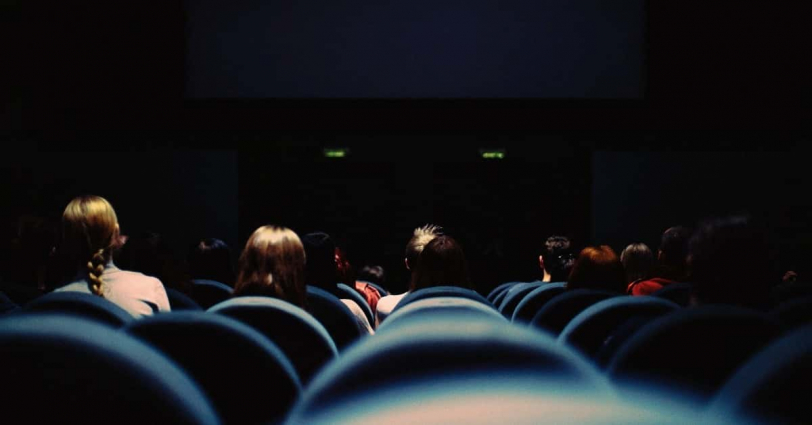I wrote this article in Japanese and translated it into English using ChatGPT. I also used ChatGPT to create the English article title. I did my best to correct any translation mistakes, but please let me know if you find any errors. By the way, I did not use ChatGPT when writing the Japanese article. The entire article was written from scratch by me, Saikawa Goto.
Introduction
Movies and books covered in this article

Three takeaways from this article
- The only rule that exists in movie soundtracks is that “there are no rules.”
- Even if you haven’t seen “JAWS” or “Jurassic Park,” their music is so powerful that you can instantly recognize them.
- In Hitchcock’s “Psycho,” the shower scene wouldn’t be scary at all without the music.
Self-introduction article


Published Kindle books(Free on Kindle Unlimited)
“The genius Einstein: An easy-to-understand book about interesting science advances that is not too simple based on his life and discoveries: Theory of Relativity, Cosmology and Quantum Theory”
“Why is “lack of imagination” called “communication skills”?: Japanese-specific”negative” communication”
The quotes used in this article are based on notes taken at the movie theater from movies in Japanese and are not direct quotes from the foreign language original movies, even if they exist.
A Documentary Tracing the History of “Movie Soundtracks” that Breathe Life into Movies

It was a very interesting movie. Although I don’t engage in any music activities myself, and don’t even listen to music much in my daily life, I watch quite a few movies, especially minor ones and documentaries. But I haven’t seen many of the major films that everyone knows because I didn’t grow up watching movies.

Even so, this film with the theme of “movie soundtracks” was incredibly fascinating, even for someone like me.

The words that struck me the most were,
There is only one rule for movie soundtracks. The rule is “no rules.”
When watching movies, it makes you think “I see,” as it truly is a world without rules. What exists there is only one point: to create the most suitable sound for that movie. That’s why various talents, such as revolutionaries, geniuses, and eccentrics, come together to create works that will go down in history.

There was a person in the movie who said as follow.
Movie soundtracks are a great art born in the 20th-21st century.
I think it’s up to each person to decide what they consider as “art,” but next episode featured in the movie gives us a big hint. It is the fact that only the world of movie soundtracks uses an orchestra on a daily basis. Of course, orchestras may also perform concerts, but they are not necessarily seen by many people. I felt that the world of movie soundtracks, which can be said to have swallowed the entire orchestra, could be called “art.”


In this movie, not only those who are actually involved in “movie soundtrack production” such as film directors, composers, musicians, and producers, but also various people such as film history researchers and scientists appear and talk about movie soundtracks. In addition, scenes from various masterpiece movies are inserted, and moments where movie soundtracks are impressively used are also introduced.
Since I don’t have much musical sense or feeling, I don’t often feel anything about the music played in movies. That’s why, in movies like this, when specific scenes are selected and explained in words, I felt that I could understand their greatness anew.
I think this film will provide an interesting insight into the historical evolution of “movie soundtracks” and what kind of revolution led to the present.

The Movie Soundtracks Genius, John Williams
Even if you don’t know who “John Williams” is, there’s probably no one who hasn’t heard the movie soundtracks he created. For example, that famous two-note sound.
“JAWS” would be incomprehensible without the music.
Yes, everyone has probably heard that impressive sound. The person who created the music that impressively plays during the scene of the shark’s appearance is none other than John Williams. Although it may seem natural now, it was considered a “reckless experiment” according to the common sense of the time. However, in reality, that too impressive phrase remained in the ears of many audiences, resulting in a great success.

His movie soundtracks are not limited to “JAWS.” He created a series of masterpieces that instantly bring to mind scenes from movies such as “Star Wars,” “Indiana Jones,” “Jurassic Park,” “ET,” and “Superman.”

I have actually never watched any of the movies mentioned above. I would say that this point is also tremendous. If I talk about the titles mentioned earlier, I may have seen “Indiana Jones” on TV or something. I also know the settings and famous scenes about other movies, but I probably have never watched them in their entirety. Nevertheless, I can tell what movie it is just by listening to the music. There may be only Japanese game music that is like that. I hardly play games, but I can tell by listening to the music created by Sugiyama Koich.
Just this point alone shows the greatness of movie soundtracks.

How did the Importance of “Music” in Movies Become More Recognized?
This movie delves into the history of movies and how movie soundtracks have come to play such an important role today.
Movies originally began with “silent movies.” There was no sound in the movies, so music was played on an organ in the theater. In Japan, “Katsudo Benshi” were people who explained the contents of silent movies during their screening, and their commentary helped to liven up the theater. In other countries, music was mainly used to cover up the sound of the movie projector.
Music was introduced for such reasons, but filmmakers gradually began to recognize that music itself had power.

The movie that first revolutionized movie soundtracks was “King Kong”. It was the first movie to incorporate an orchestra into the movie soundtracks, which was a very revolutionary thing.
Also, in the first place, “King Kong” feels very fake without music. Since it is actually a costume, it is natural. However, by adding music, the power is instantly created. “King Kong” was truly a movie that made movie creators realize the power of music.


Afterwards, jazz was incorporated in “A Streetcar Named Desire” and a band was used in “007”, greatly expanding the range of movie soundtracks.
There is no wrong way. I just keep trying until I get it right.

Movie soundtracks continued to evolve in this way. The mid-1960s to early 1970s are called the golden age of movie soundtracks. The most representative example is Hitchcock’s “Vertigo,” which is considered a model for movie soundtracks.
Also mentioned is Hitchcock’s “Psycho.” Everyone probably knows the famous “shower scene,” but in “Score: A Film Music Documentary,” there is a part where the “shower scene” is played without music. Indeed, this scene is not scary at all without music. It was a depiction that made us realize how powerful music can be.

A person praised the effect of the music in the “shower scene” in an ironic way, saying:
I guess if it wasn’t in a movie soundtrack, it would just be irritating noise.
Certainly, it’s not the kind of music one would want to listen to outside of a movie soundtrack, but it’s a stunning scene where the visuals and music are intimately intertwined.

What is the “Role” of Movie Soundtracks?
Someone once said about the role of movie soundtracks,
Music is a lubricant that gives the audience the desired emotions.
This would be exactly what comes to mind when we imagine the role of movie soundtracks. The audience can understand what kind of emotions they should have in each scene by being guided by the music. And that can be one of the guides for watching a movie. We don’t have to feel the emotions that the music suggests, but there is no doubt that there is an effect where we can feel relieved to cry thanks to be guaranteed that “it’s okay to cry in this scene.”

However, the role played by movie soundtracks is not limited to that alone.
In this movie, a female scientist gave a very interesting talk. Overall, it is a talk about “what kind of influence music has on the brain,” but as part of that, she also talks about “the gaze of the audiences watching the movie.”

Where are the audiences in the movie theater looking at each scene? I think it’s natural to think that each audience has different tastes, and there are various things on the screen, so “each audience is looking at a different part.” One audience may be looking at the protagonist, while another may be capturing the car in the background. It would be natural to think that each audience is free to look at various parts of the screen.

However, actual experiments have shown results that are different from such an image. In other words, the gaze of the audience in a scene matches with a fairly high probability. And it is movie soundtracks that bring about that effect. The audiences are not only controlled by emotions, but also by music, even their gaze.
I don’t know if the composer had such intention, but the story reminded me of the power of music.

Evolution and Innovation of Movie Soundtracks
Movie soundtracks continue to evolve as they absorb new elements, and with “The Social Network,” a new innovation was introduced. The movie soundtrack for “The Social Network” winning an Academy Award became one of the opportunities for electronic musicians to enter the field. With the entry of electronic musicians who can manipulate sounds that cannot be produced by traditional instruments, movie soundtracks become even more “beautiful” and “chaotic.”

By the influx of talented individuals in this way, the world of movie soundtracks once again produced geniuses like John Williams, and that person is Hans Zimmer. He is a genius who has worked on many famous works such as “Mission: Impossible”, “Gladiator”, “Hannibal”, “Pirates of the Caribbean”, and “Interstellar”, and is a top runner in movie soundtracks.
However, even he feels anxious when facing movie soundtracks.
Sometimes I get paranoid with fear, and sometimes I worry to death, but I have no intention of quitting.

Thanks to those who continue to strive like this, we are able to enjoy watching movies happily.
However, just because electronic music is thriving doesn’t mean they rely solely on it. “Score: A Film Music Documentary” depicts those who try and error to pick up “sound” from all sorts of things. Some have bought children’s toy pianos to use in creating music for children’s anime, while others are collecting all kinds of musical instruments we have never seen or heard of from around the world.


The composer who shocked the film industry with “Planet of the Apes” is said to have created sound by hitting a metal bowl with rubber balls. It is a world of “no rules,” where anything goes as long as it fits the film and the scene, which is why new talent would be attracted to this world.
It left me with a sense that it is a very profound world.

Conclusion
This movie made me realize that while having constraints can be important in creating, having no constraints at all can also greatly stimulate creativity. Even for those who are not involved in movies or music, I think it can be an interesting watch for anyone involved in some form of creation.
It’s a valuable record of first-class genius creators talking about their creations in their own words.

Published Kindle books(Free on Kindle Unlimited)
“The genius Einstein: An easy-to-understand book about interesting science advances that is not too simple based on his life and discoveries: Theory of Relativity, Cosmology and Quantum Theory”
“Why is “lack of imagination” called “communication skills”?: Japanese-specific”negative” communication”







コメント